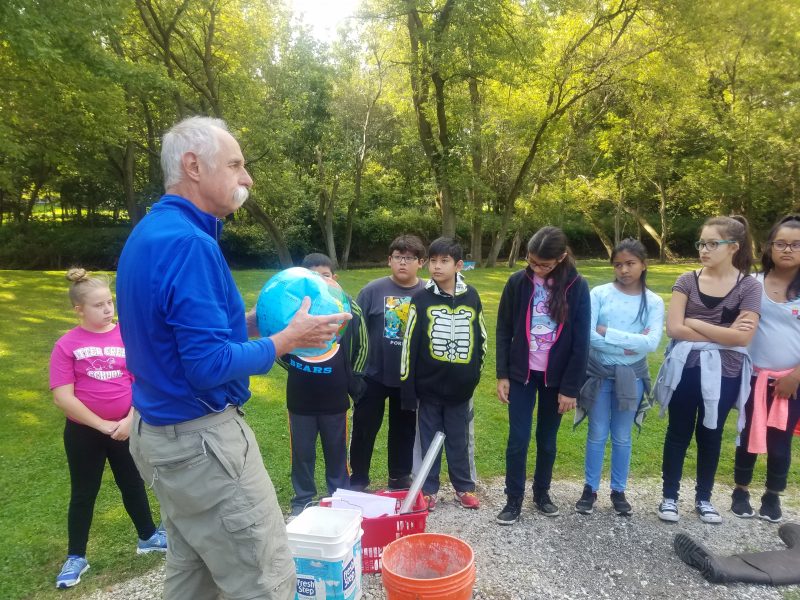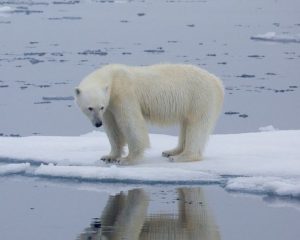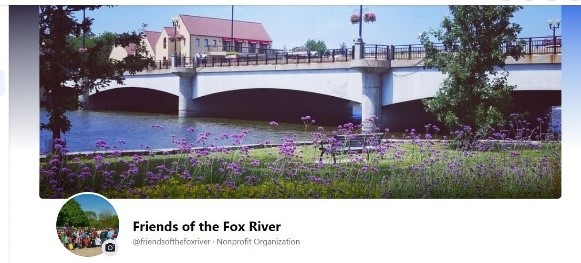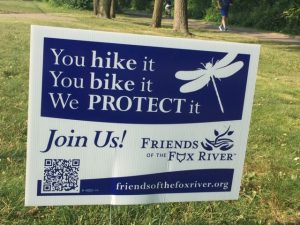By Gary Swick, FOFR President
Returning to familiar but different landscapes is commonplace for life in the natural world. Most bird species migrate in the fall; their return in the spring is both an investment in what was there last fall and a gamble that what is needed for survival will still be accessible.
The availability of nesting sites, abundant food that fortified them in the previous year, and safety from adverse weather or predators is what is expected. But a fire, flood, or any imbalance in ecosystem stability can be a game changer for their welcome home.
Important Neighbors
Plants and animals have evolved to be successful in their particular habitats and these habitats are complicated. In Illinois there are 91 habitat types and they are not mere locations such as prairie, forest or wetland. In addition to the life-supporting physical condition of these habitats, they also support their neighbors. Most plants and animals have essential relationships with other partners. A flower’s reproduction dependence on pollinators or seed dispersers is a good example. In our watershed we have the monarch butterfly’s specific reliance on the milkweed plant as a nursery. No milkweeds = no monarchs.
Changing Neighborhoods
When a habitat changes, regardless of the reason, it can cause a ripple effect that resonates in all directions. In nature, when habitat alteration changes there is a rule; migrate, adapt, or die.
In our human world, the same is true for individuals and communities. As our climate changes, so do the zones suitable for residence, agricultural systems, and our livelihood. Just as a forest-dwelling squirrel may have challenges in an ocean’s kelp forest, our human ventures may end up in a place poorly suited for our particular needs. Each year when migrating species return or hibernators emerge from their burrows they are presented with what previously was a suitable habitat in which they were successful. But the world is full of change, some predictable and some not. This past year for humans, COVID-19 changed the landscape. Travel agents, restauranteurs, educators, and many more have had to migrate and adapt their practices.
Friends is Adapting
Friends of the Fox River (FOFR), in its work to create a watershed of caretakers, is adapting to a social landscape that is gradually changing. Our work in education is currently more virtual than standing in the stream with 30 students. Conducting clean-ups has been easier. Staying relevant and connected to the public is a challenge for FOFR requiring us to migrate and adapt our efforts.
Meeting Our Neighbors Where They Are
Our April Fool’s joke about the death of our Watershed News, was the result of an adaptation in our member communications. We have emerged into an era where folks want their information in regular bite- sized bits that they can graze, as opposed to a large plate delivered monthly. We hope that our weekly connections will make us better friends. Current members will be asked to offer their opinions on FOFR services in an upcoming phone survey. Please notify us if you do not wish to be contacted for this endeavor.
Becoming a Friend of the Fox River
Speaking of friends, we are making new ones. We are reframing our concept of FOFR members in favor of building our FOFR friendships. In the past we asked for an annual contribution in exchange for an annual membership with benefits. Our new system is an adaptation to better fit in our mission of creating a watershed of caretakers. If anyone supports us with their volunteer efforts, financial support, and/or other contributions to our mission, we will welcome them in as a “friend.”
Examples of Growth
We have a large watershed to preserve, restore and protect. It requires a unified approach that binds us together and our cleanups are very tangible demonstrations of that. More frequent communication with the Watershed News will keep us better connected. We are growing our social media presence, with 4,100 followers on Facebook and 1,000 on Instagram.
A grant from the First Congregational Church in Elgin has enabled us to upgrade our website. An additional grant, and a very generous donation from a board member, is giving our Dragon(fly) Wagon Mobile Lab a new look with a vinyl wrap. Finally, we are seeking support from several sources to improve our Schweitzer Environmental Center to reopen to public and school experiences there.
Being Supportive Friends
Friends care for each other while celebrating in good times and supporting each other through challenges. Friends of the Fox River is building our friendship community through adapting to changing conditions. We hope you will continue to nurture our friendship with continued financial support, participation in our community events, and in volunteering with committee and leadership roles. At Friends of the Fox River we highly value our friends, like you.





